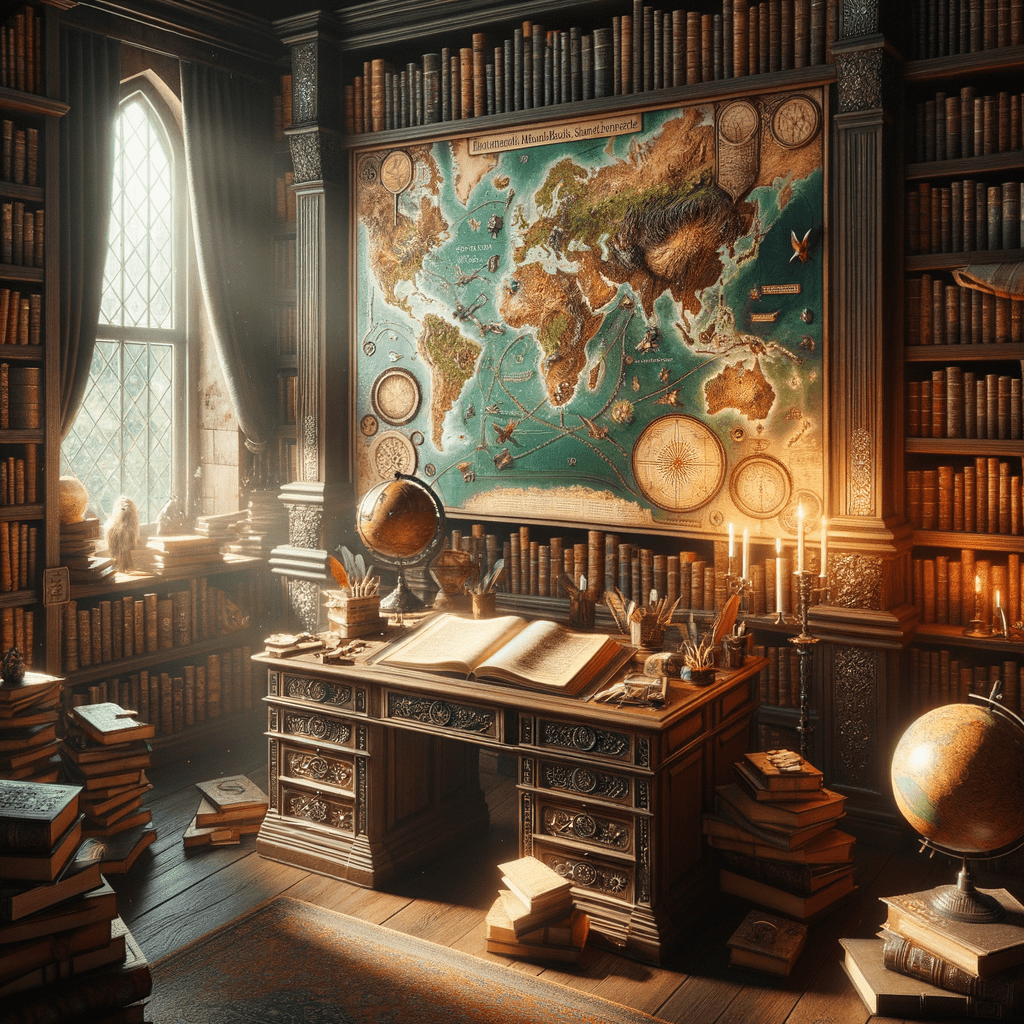Why Fantasy Literature Feels like Home to Me
Fantasy literature, oh how it tugs at my heartstrings! From the time I was just a wee child, these magical tales whisked me away on personal adventures, right from the cozy nook of my bedroom. Can you imagine? Dragons, spells, brave heroes, and the dastardly villains. These weren’t just stories—they were my escape. But here’s the kicker: it wasn’t just about the action-packed adventures or the characters. Nah, it was those enchanting worlds themselves that reeled me in. The art of world-building? Now that’s the real star of the show. It’s not some garnish you throw on top—it’s the juicy steak at the center of the plate.
When it comes to world-building, it’s all about making a universe that doesn’t just hold together logically, but dazzles with wonder. When an author nails it, that world becomes a living, breathing companion, inviting you in. Trust me, it’s not about just tossing in castles or throwing a few elves into the landscape. It’s about weaving a rich ecosystem that feels genuine, no matter how fantastical it is. Honestly, that escapism? That’s why many of us clamor for fantasy. We crave that place where the unattainable suddenly seems attainable.
Gosh, imagine if J.R.R. Tolkien didn’t meticulously detail Middle-Earth, or if George R.R. Martin skimped on Westeros’s storied past. Those epic tales could’ve just flopped—not because the storylines failed, but because they lacked depth. These worlds aren’t mere settings—they’re as alive and intricate as the main characters.
Now, here’s the dream: fantasy worlds should be so immersive that they’re more than just scenery. They should feel like you can almost reach out and touch, hear, even smell them. The rustling of magic-infused forests, whispers of age-old spells, a distant dragon’s roar—each element should wrap around you like a snug blanket. For me, those are the stories that linger in my bones long after I close the book, leaving me wandering in my mind through those spellbinding realms.
There’s also something incredibly emotional about world-building. It stirs feelings of awe, thrill, and sometimes a sweet spot of nostalgia. Worlds that capture our hearts leave lasting impressions on us. Just think of the legions who’ve dreamt of walking the halls of Hogwarts or setting sail toward Narnia. Those places go beyond mere backdrops; they become a second home.
Creating such worlds ain’t no walk in the park, boy oh boy. It’s not just about a burst of creativity but a commitment to consistency. Geography, politics, culture—every aspect has to gel within the story’s framework. An author can’t suddenly decide to plop a floating city out of nowhere without sowing the seeds for it first. Like every storytelling aspect, world-building calls for dedication, precision, and a whole lotta love.
And let’s get real here for a sec. World-building isn’t just fun and games. It lets authors delve into deep and heavy themes in a format that’s easy to digest. Imaginary kingdoms can reflect real-world hot topics like power, justice, or identity. A world ruled by dragons might echo today’s environmental and control issues. An enchanted forest could symbolize human fears of the unknown or the unexplored fringes of understanding. Basically, fantasy is like a shiny mirror—reflecting all parts of society’s character, good and bad.
But hey, let’s not gloss over the occasional snags in world-building. Nothing’s perfect, right? Some worlds get so bogged down with detail that it’s more of a maze than a wonderland. It’s all about balance—hit that perfect storytelling Goldilocks zone. Throw in too little detail, and the world feels flimsy; pile on too much, and you end up in a narrative bog. Striking that perfect balance where the world leaps off the page but doesn’t drown you is definitely a dance every fantasy author has to master.
World-building might seem a bit intimidating at first glance. But man, it’s a true labor of love. There’s a delightful satisfaction in piecing together societies, languages, and histories—even if only a sliver makes it into the final narrative. It reminds me that when readers pick up a book, they aren’t just reading words; they’re stepping into a universe lovingly crafted by the author’s imagination, and by the dreams and hopes of every reader who walks those pages.
Sure, magic, epic battles, and a sprinkle of romance are the heartbeats of fantasy stories. But, for me? World-building is the real magic wand—where reality meshed with fantasy and transformed into an uncharted realm. Just flipping the pages isn’t enough; truly living the story takes it to a whole new level. Once you’re lost in a well-built world, returning to mundane reality feels like a piece of your heart lingers behind, wandering through fields of imagination stitched together with ink and paper.















